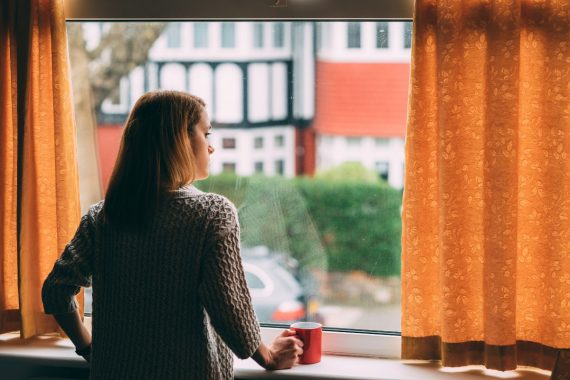Clinically extremely vulnerable advised to consider whether contacts are vaccinated

Patients who are clinically extremely vulnerable to Covid-19 have been advised to ‘consider’ whether contacts are vaccinated before deciding to interact with others, the Government has said.
The update to the shielding guidance said the cohort ‘may choose to limit’ close contact with people they don’t usually mix with, and that they should ‘consider whether you and those you are meeting have been vaccinated’.
The guidance, updated yesterday, comes into effect on 19 July when the UK moves into step four of lockdown easing, as confirmed by the health secretary yesterday afternoon.
It said: ‘As restrictions will be eased following the move to step four of the roadmap, we will be advising clinically extremely vulnerable people, as a minimum, to follow the same guidance as everyone else.
‘However, as someone who is at a higher risk of becoming seriously ill if you were to catch Covid-19, you may wish to think particularly carefully about additional precautions you might wish to continue to take.’
It added: ‘Individuals may choose to limit the close contact they have with those they do not usually meet with in order to reduce the risk of catching or spreading Covid-19, particularly if they are clinically extremely vulnerable and when Covid-19 disease levels in the general community are high.’
The guidance said the clinically extremely vulnerable should ‘continue to consider the risks of close contact with others’ – especially if not yet fully vaccinated – in certain key scenarios such as crowded spaces, enclosed indoor spaces and when Covid levels are ‘high’ in the community.
It recommended:
- Meeting outside if possible
- Making sure indoor spaces are well-ventilated
- Considering whether both parties are vaccinated, perhaps waiting until 14 days after their own second jab ‘before being in close contact with others’
- Washing hands regularly and avoiding touching their face
- Considering ‘continuing to practice social distancing if that feels right for you and your friends’
- Asking friends and family to take a lateral flow test before visiting
In April, patients who are clinically extremely vulnerable to Covid were advised they can stop shielding, though they were told to still ‘take extra precautions’ such as social distancing.
It comes as Public Health England (PHE) has been accused of ‘misleading’ immunosuppressed patients after announcing that Covid vaccines are 74% effective in the immunosuppressed after a second dose is given – rising from 4% after the first.
The health secretary last week urged immunosuppressed patients to contact their GP about additional precautions to protect themselves from coronavirus, in anticipation of Covid restrictions ending later this month.
If the planned booster programme goes ahead from September, the JCVI has recommended that the clinically extremely vulnerable and the immunosuppressed should be one of the first priority groups in the two-stage programme.
The household contacts of the immunosuppressed are recommended for inclusion in stage two of the booster programme.
Related Articles
READERS' COMMENTS [3]
Please note, only GPs are permitted to add comments to articles










Interesting
Am I right to say that this update is based on honesty of human nature in terms of removing all these person to person restrictions i.e. social distancing and face covering?
When I travelled to Japan I saw true civic duty. Here on the other hand. Please. You will be infected at the first opportunity. Then shouted at.
why?